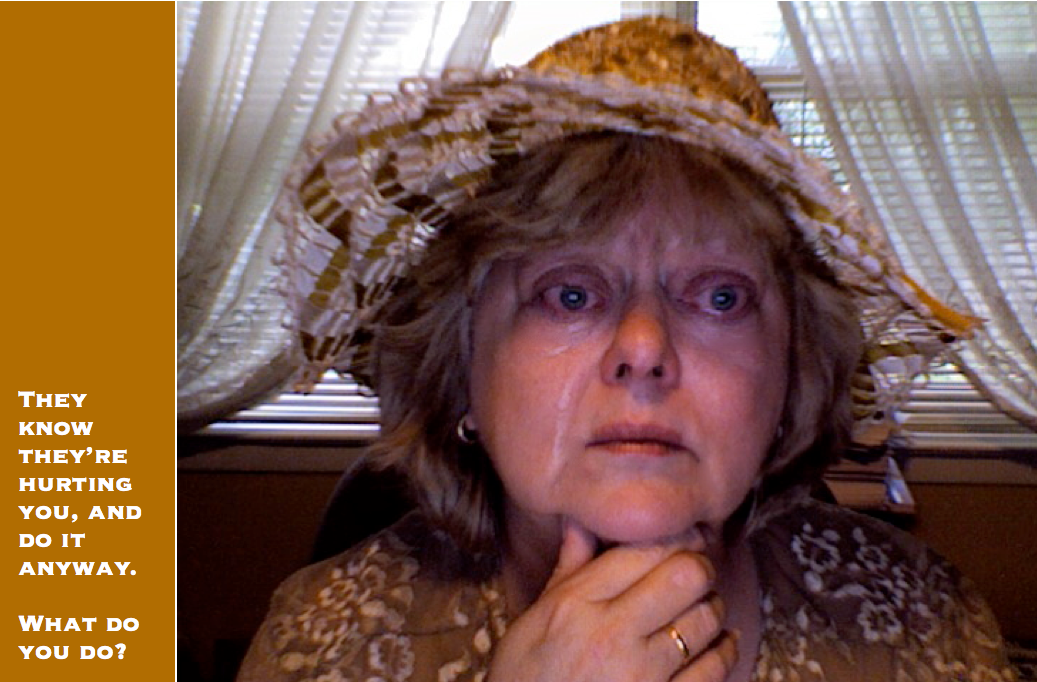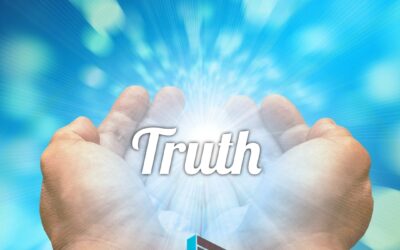At some point in time, seeking peace is something that impacts everyone.
Whether we’re in a job where it eludes us, in a situation where it eludes us, or creating a project where it eludes us, we look for a way to arrange things so that we can do what we must and be at peace with what we’re doing, the way we’re doing it, or the results that will come to us from having done it.
Some are by nature peacemakers. We’ll go to any lengths we can bear to have peace. We’ll bite our tongues, swallow our pride, keep our warnings to ourselves or stay silent when know we should speak up. Some of us tolerate, endure, suffer injustice, slander, and intentional malice–all in the name of peace. We forgive and forget, whether or not genuine regret or remorse has been expressed, only to find that nothing has changed and peace is not at hand. We do everything and anything to foster peace, and yet peace remains as elusive as reflections in a mirror.
Yesterday, a mother related a story of her life as a polygamist wife where she watched her arranged-marriage husband “break” their baby. What the man did was use water as a weapon against the baby, and his purpose for doing it was to nearly drown the infant so that the baby feared his father. Fear, you see, would make this infant grow into a docile, amiable, do-whatever-I-say-without-question toddler, child and then adult. This would assure the father had total control and peace in his household.
Obviously, the man shouldn’t be allowed anywhere near that child. What he did was torture and that he committed these crimes against a defenseless infant is indefensible. He should be prosecuted and put behind bars where he can’t inflict his warped views on anyone else.
But what was equally interesting was the mother’s reaction. She did nothing. She witnessed this treatment of her infant child by this man who supposedly loved them both and did nothing.
She was, no doubt, also victim of his abuse. She was terrified of him. While she found what he was doing repulsive, she still did nothing to protect or defend her child.
I understand abuse. I understand how insidious it can be; how one day you’re living a normal life and the next you awaken to find yourself in an abusive situation and you wonder how you got there and when it happened. You often can’t pinpoint a single event or a single date that it started because it starts out so small, so sly, and then suddenly it’s just there. But eventually, you also wonder how you can get out of it.
Many feel there is no way out. That they’re stuck. They’re threatened, have nowhere to go, no way to go, and aside from where they are, they have no way to live, so they endure–and seek peace with that decision.
I understand this on the part of the woman. What she’s willing to tolerate for herself. I don’t agree with it–if one seeks, there is a constructive solution to be found and outsiders who will assist another in finding a way out. But I don’t understand her allowing her husband to treat her baby this way without doing something to stop him. Anything to stop him. Without taking some action in a situation such as this, how can one find any sense of peace?
Maternal instincts run deep in most of us. So deep that we’ll forfeit things we hold near and dear for the good of our child. We’ll withstand that which we believed could not be withstood, and we’ll sacrifice what must be sacrificed for their greater good. We don’t use our kids as weapons or shields. We don’t tolerate them being abused or mistreated. We can’t, not and ever know peace ourselves because when our child is in pain, we are in pain, and we feel it often more deeply when it’s them and their pain than we do when it’s our own.
So this woman perplexed me. I thought about her and the story she related for a long time. I’m not judging her for her lack of action–she lived it, and only she knows all its intricacies–I just wanted to understand it and I couldn’t wrap my mind around her inaction or reconcile it. Abused and beaten down, she feared. I get that. But she watched. She allowed. And she lived with this man afterward. How?
I have no answers. I don’t know whether it was an exhibition of her greatest weakness (self-survival) or her greatest strength (her and her child’s survival). I don’t know how she slept at night or met her own eyes in the mirror. I don’t know if today, now that she’s out of that situation and safe in an abuse-free environment, she has made peace with her past. Does she think about what she permitted or allowed? Does it haunt her? Cripple her in her relationships with others now? Is she over-protective now, trying to make up for her past inactions? To ensure that nothing like that ever happens to her or her children again? Who knows?
That this man claims his actions his divine right from God is just another incident where someone corrupts religion and uses God to do as he wishes without recourse. It is corruption. Rationalization. And there most definitely is recourse. Twisting faith to do as one will knowing it’s wrong always carries penalties and consequences. And he will pay them.
Whether or not we accept facts, they exist. And one fact is that every action causes a reaction. If one acts, and that act is corrupt, then one will suffer the reaction to that corrupt act. It’s universal law. Eternal justice. The scales, we’re told repeatedly in the Word, will be balanced.
If one commits such a crime unknowingly, then one isn’t held accountable. We’re told that, too. But that doesn’t mean that the acts won’t carry consequences or that there won’t be a reaction, only that accountability isn’t charged because one knew no better. But the lesson for learning is still had, and through it, the person is given an opportunity to grasp the truth: what is wrong and why. One learns the impact of a corrupt act on one’s self and on others. From that point on, ignorance is not a valid excuse because having experienced the corrupt act, having felt and bore the consequences of it, one now knows better. Knowing better, one is now accountable.
In this case, the man knew what he was doing was wrong. He knew he’d corrupted truth and the Word to suit his own purposes. And the Word tells us that in that situation, we are held accountable for our actions–and for the resulting consequences of them (to ourselves and to others), whether or not those consequences were intended or unintended.
In this case, the woman knew what the man was doing was wrong and that her doing nothing to stop him was wrong. For her part, she will be held accountable. And that part extends to her child.
What reaction will the child have to the treatment suffered at the hands of both his parents?
The implications there stretch and yawn. The impact is sure to be felt in every aspect of that child’s life for all of that child’s life. Used and abused. Abandoned. Issues of worth, value; a warped sense of right and wrong; commitment challenges, trust and respect issues–the stream is endless. How will this child, the adult s/he becomes, ever realize his/her potential? How will s/he ever know peace?
I went to sleep with that child on my mind, worrying about all this, and somewhere in that netherworld where you’re awake and sleeping simultaneously, the answer came to me. There is but one way, and that baby will find it:
Grace.
Even when we’re in awful situations, when we believe we’re alone, we’re not. We might endure and suffer and trudge through man-made hell on earth, but through it all, God is there. The nights are dark, but we have His promise of joy in the morning, and even when in situations where we feel we can rely on no other, we can rely on that. On Him.
So I think of that child and the skills s/he has acquired in just staying alive. It hurts my mother’s heart that s/he’s had to develop them, but it is comforting to know that God is there. Always has been, always will be. And He will help that child find peace.
Hopefully sooner rather than later.
He’ll put the right people in the right place at the right time. He’ll create opportunities and open doors. He’ll spark desires in the heart, and encourage and support and nudge and guide and keep hope alive. No matter how hard it is, He won’t give up. He’ll stay. He’ll endure. He’ll stand fast and He’ll be there for that child and for the adult s/he becomes. And one day, when that child is ready, s/he will seek peace and come to terms with the past. When s/he does, God will be there then, too, eager to bless and give what is needed.
The underlying truth in this is available to us all. We can be in difficult situations and still be at peace. In due season, we’re delivered. We might not see the path, the way out. But God does. Knowing that fosters hope. Hope gives us strength to get from where we are to the other side of it. So if we listen to Isaiah, fix that strength on God, trust Him, then regardless of what is going on in our world, we can be at peace because we’re not limited to the ways and means of this world.
Adversity is ripe in life; we can’t avoid it. But there is a way to have peace in the face of adversity, a way that doesn’t require its absence. Isaiah told us how to do it in 26:3. And if we can follow that instruction, then we too can know that perfect peace.
Blessings,
Vicki




